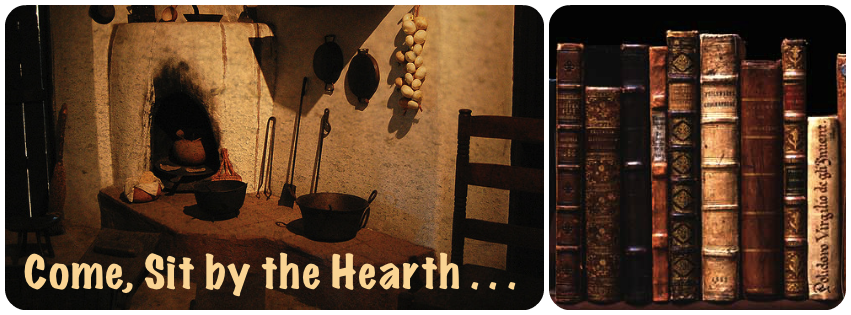The first poet of the new year is:
Tarfia Faizullah
Tarfia was born in Brooklyn, New York, and raised in Midland, Texas by parents who had immigrated to the United States from Bangladesh.
"My father (a doctor in private practice) often had Highlights magazine in the waiting room of his clinic," she says, "which I read from cover to cover. I also avidly read everything by Madeleine L"Engle, Cynthia Voigt, Lucy Maud Montgomery, and Frances Hodgson Burnett, to name a few. I wrote as a child, both poems and short stories. I think it was reading that ultimately led me to writing. It was through that act of immersion in someone else"s attempt to describe the world that I felt a strong compulsion to do the same. I used to copy poems I had read in volumes of Encyclopaedia Britannica for Kids into my journal. Later, in college, I read this quote by Gunter Kunert in Stephen Dunn"s memoir Walking Light: "That"s why I write: to bear the world as it crumbles." That struck an incredible chord with me."
- Ploughshares.

Her book
Seam,
winner of the 2012 Crab Orchard Series in Poetry First Book Award,
is due out in March of 2014, and it is available for pre-order.
Her poems appear in Ploughshares, The Missouri Review, The Southern Review, Massachusetts Review, Ninth Letter, New England Review, Washington Square, Best New Poets 2013, and elsewhere. A Kundiman fellow, she received her MFA from Virginia Commonwealth University and is the recipient of an AWP Intro Journals Project Award, a Ploughshares Cohen Award, a Fulbright Fellowship, a Copper Nickel Poetry Prize, a Dorothy Sargent Rosenberg Prize, scholarships from Bread Loaf Writers' Conference and Sewanee Writers' Conference, fellowships from the Kenyon Review Writers' Workshop and Vermont Studio Center, and other honors.
Seam is a book that narratively and structurally relies on distance: between two continents and cultures as well as between the year of Bangladesh’s independence and its modern moment. ...
I still have no words for how I felt about a woman enduring such horror feeling sorry for me. In this way, and so many others, my time in Bangladesh made me rethink culture, victimhood, violence, and empathy.
How about some poetry, after all, that's why we're both here. No?
from: Interview with a Birangona
In 1972, the Bangladeshi government accorded a new visibility to the 200,000women raped during the 1971 Liberation War by lionizing them as birangonas (war heroines), though they were often ostracized by their families and social circles.
What were you doing when they came for you?
Gleaming water sweeps over
Mother’s feet. Bayonets. Teeth.
My green and yellow Eid sari
flaps damply between two palm
trees. Grandfather calls to me:
mishti maya. Girl of sweetness.
Aashi, I call back. I finish braiding
my hair, tie it tight. I twine a red string
around my thigh. That evening,
a blade sliced through string, through
skin, red on red on red. Kutta, the man
in khaki says. It is only later I realize
it is me he is calling dog. Dog. Dog.
Who was in charge at this camp? What were your days like?
All I knew was underground: bodies piled on bodies,
low moans, sweat, rot seeking out scratches on our thighs,
the makeshift tattoos he carved on our backs to mark us.
Over milk tea and butter biscuits, the commander asks
what it feels like to have dirty blood running through our
veins. There were days we wooed him, betrayed each other
for his attention—now he turns me over on burlap.
Outside, bundles of jute skim the wide river. I turn
my face away. Kutta, he says. You smell. Tell me anything
you know about the body, and I will tell you how
it must turn against itself. Now I’ve seen a Muslim
girl naked, he says. How my body became an eddy,
a blackblue swirl. Don’t cry, he says. How when the time
came for his choosing, we all gave in for tea, a mango,
overripe. Another chance to hear the river’s gray lull.
Originally Published in Ploughshares
The Legacy of Women in the Liberation War, 40 Years On
Learn more about the stories behind this moving poetry at The Stories We Tell.
Ramadan Aubade
i.
Early pre-dawn mornings, a brief wind thumbing through coral bell vine, the tea drowsy with sweet.Father in the kitchen, eating eggs quickly— the sun rising, pressing the sin of eating onto his hands and feet.ii.
The painted star. Its solid center, wet unseeing on my back— my eyes opened, the star briefly spinning.iii.
No, not another bite, I say. Bananas soaked in milk. Coconuts shaved into moon- curls.iv.
Hours on the prayer mat. I wanted to be sacrosanct, rubbed clean, new palimpsest folded— narrower and narrower threads of hunger.v.
Later, I tried to sing myself into fire, but became a knife instead. The center held briefly, then broke into a wall of wine-red doorways.
Originally Published in Mid American Review
Aubade: Wedding
Sister, you left that one black hair on the towel they used to dry your corpse, as well as one lilac dress, hanging in the room our parents call your room, even though you have never lived here. If you want to be the shade pulled over the window at dawn, I will still be the sister who lifted my hand, marked your face with its palm. If absence wants a father quiet with guilt, I will be the bride-to-be, awake in your room the night before my wedding, breaking open the wide-eyed dolls facing eastward, still pristine on their shelves. Be the shade, Sister, that snaps open so light beads my hands, because the henna must be dry by dawn, rubbed away from my promised palms.
Originally Published in The Southern Review


No comments:
Post a Comment